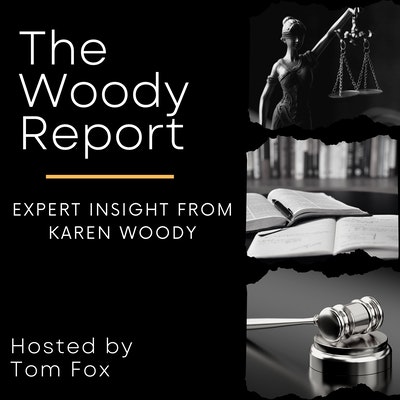Karen Woody is one of the country’s top legal experts on the intricacies of insider trading laws. I recently had the chance to visit with her about a significant case which pushed the boundaries of the case law on this topic. It is the case brought by the SEC against Matthew Panuwat over shadow inside trading, which ended in a conviction against Panuwat. In addition to being a significant new step by the SEC, it highlighted the need for organizations to navigate the ethical and practical considerations surrounding insider trading.
Panuwat, was a former senior director of business development at Medivation, an oncology-focused biopharmaceutical company. He was accused of using confidential information about Pfizer Inc.’s impending acquisition of Medivation to trade ahead of the news for personal gain. Instead of buying securities of Medivation, Panuwat purchased short-term, out-of-the-money call options of another comparable public company, Incyte Corporation, which he knew from his position at Medivation was ‘in play’.
The lessons from this case highlight the importance of stringent internal controls and policies to prevent insider trading and the misuse of material nonpublic information. It also underscored the need for companies to ensure that employees understand their legal and ethical responsibilities when handling sensitive information.
Woody emphasized the importance of understanding the restrictions imposed by insider trading laws, emphasizing that employees who have access to privileged information about their company cannot trade based on that knowledge. This fundamental principle serves as the cornerstone of insider trading regulations. She further explained the complexities surrounding the enforcement of such laws, pointing out the gray areas that often exist within the legal framework.
Woody laid out several key areas for consideration. The first was for companies to implement 10(b)(5)(1) Plans. Here Woody suggested the use of 10(b)(5)(1) plans to regulate insider trading practices effectively. These plans dictate when and how company employees can trade stocks based on privileged information. Expanding this traditional mechanism for greater scope could help reduce the windows for legal insider trading and thereby minimize the risk of legal issues arising from insider trading activities. She stressed the importance of restricting employee trading to curb shadow trading and advocates for clear controls over business activities involving sensitive information to prevent breaches and violations.
Next is a more industry-wide prohibition of information. Through the implementation of an industry-wide prohibition on trading to prevent the misuse of inside information. The key is the non-public aspect of this information that someone in Company A can pick up or discern about Company B. By expanding ban regulations and limiting trading windows based on potential insider information, the aim is to enhance fairness and transparency in trading practices.
A third area is around the ‘gray areas’ present in current insider trading laws. By examining and refining existing regulations, the goal is to create a more robust legal framework that ensures compliance and integrity in financial markets. Insider trading laws are constantly evolving, making it crucial for businesses to stay up-to-date with the latest regulations. Regularly updating Insider Trading Policies ensures that employees are aware of their responsibilities and the consequences of engaging in insider trading. It also demonstrates a commitment to ethical behavior and compliance with the law.
It is important for both companies and employees to understand what constitutes material non-public information and the legal implications of trading on such information. Employees should be educated on the types of information that are considered material and the consequences of using it for personal gain. By keeping Insider Trading Policies current and relevant, businesses can better protect themselves from legal repercussions and reputational damage associated with insider trading incidents. It also helps in fostering a culture of integrity and accountability within the organization.
Your company should establish clear guidelines for reporting and investigating suspected cases of insider trading. Having a robust compliance program in place, including regular audits and monitoring, can help prevent and detect insider trading activities. It is also essential to ensure that employees are aware of their obligations under insider trading laws and the importance of upholding ethical standards in their conduct.
Woody highlighted the critical role that ethics and character play in decision-making, especially when dealing with privileged information. She underscores the ethical risks associated with insider trading, which involves breaching confidentiality and using non-public information for personal gain, thus posing a threat to the fairness of financial markets.
Preventing insider trading starts with creating a culture of transparency and ethical behavior within the organization. Encouraging employees to report any suspicious activities and providing clear guidelines on what constitutes insider trading are essential steps. Implementing regular training sessions on insider trading laws and consequences can also help raise awareness among employees.
The Panuwat case sheds light on how balancing legal versus illegal trading practices and defining material non-public information can be a challenging task. As Karen Woody aptly emphasizes, maintaining a strong ethical compass and upholding fiduciary duties are paramount in navigating the intricacies of insider trading laws.






